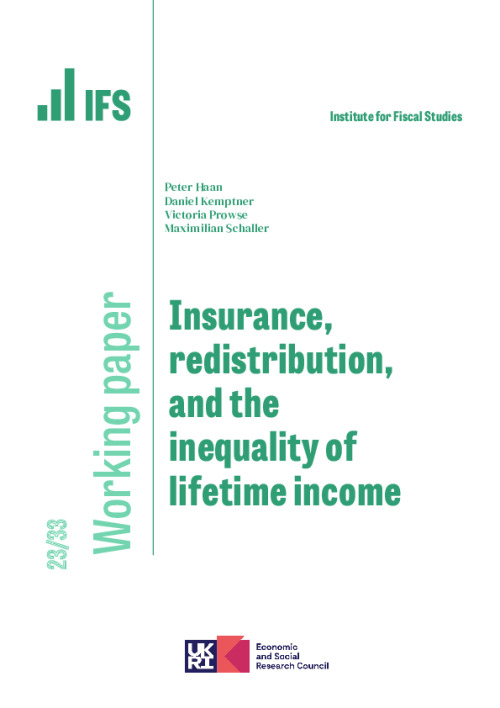Downloads

Download working paper here
PDF | 3.01 MB
Individuals vary considerably in how much they earn during their lifetimes. This study examines the role of the tax-and-transfer system in mitigating such inequalities, which could otherwise lead to disparities in living standards. Utilizing a life-cycle model, we determine that taxes and transfers offset 45% of lifetime earnings inequality attributed to differences in productive abilities and education. Additionally, the system insures against 48% of lifetime earnings risk. Implementing a lifetime tax reform linking annual taxes to previous employment could improve the system’s insurance capabilities, albeit at the cost of a lower employment rate.
Authors

Research Fellow DIW Berlin
Head of department of Public Economics at DIW Berlin and Professor of Public Economics at Freie Universität Berlin.

Daniel Kemptner
Professor of Economics Purdue University
PhD Candidate FU Berlin and DIW Berlin
Working Paper details
- DOI
- 10.1920/wp.ifs.2023.3323
- Publisher
- Institute for Fiscal Studies
Suggested citation
Haan, P et al. (2023). Insurance, redistribution, and the inequality of lifetime income. 23/33. London: Institute for Fiscal Studies. Available at: https://ifs.org.uk/publications/insurance-redistribution-and-inequality-lifetime-income (accessed: 29 June 2024).
More from IFS
Understand this issue

Election Special: Your questions answered
27 June 2024

Election Special: The big issues politicians haven't spoken about
25 June 2024

Election Special: The Labour manifesto explained
14 June 2024
Policy analysis

How do the last five years measure up on levelling up?
19 June 2024

What are the parties’ plans for benefits and taxes?
24 June 2024

How would the parties’ tax and spending plans affect Scotland and Wales?
28 June 2024
Academic research

Income inequality in Ireland, 1987–2019
28 June 2024

Components of the evolution of income inequality in Sweden, 1990–2021
28 June 2024

The intergenerational elasticity of earnings: Exploring the mechanisms
3 June 2024